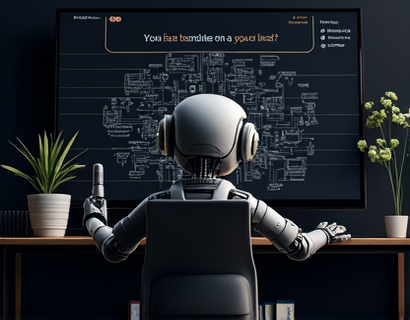Smart Home Elevation: Embracing the Future of Living with Cutting-Edge Appliances
In the rapidly evolving landscape of home technology, the concept of a smart home has transcended from a futuristic dream to a tangible reality. The integration of advanced appliances and devices into our living spaces promises not only convenience but also efficiency and sustainability. This article delves into the latest innovations in smart home solutions, highlighting appliances that are redefining modern living. From seamless automation to energy-saving features, these cutting-edge devices are designed to blend advanced technology with the practicalities of everyday life, offering a transformative experience that elevates your home and enhances your daily routines.
Understanding Smart Home Appliances
Smart home appliances are devices that can be controlled, monitored, and optimized through a network, typically a home Wi-Fi connection. These appliances range from traditional items like refrigerators and washing machines to more specialized devices such as smart thermostats and security systems. The core advantage of smart appliances lies in their connectivity, allowing users to manage their home environments with unprecedented ease and precision. This connectivity is achieved through various platforms and ecosystems, each offering a unique set of features and integrations.
Smart Thermostats: The Brain of Your Home's Climate Control
One of the most impactful smart home devices is the smart thermostat. These devices learn your temperature preferences over time and adjust the heating and cooling systems accordingly, ensuring optimal comfort while minimizing energy waste. Advanced models like the Nest Learning Thermostat and Ecobee Smart Thermostat go beyond basic functionality by integrating with other smart devices, allowing for voice control through assistants like Amazon Alexa or Google Assistant. These thermostats can also provide detailed energy usage reports, helping you identify patterns and make informed decisions to reduce your carbon footprint and lower utility bills.
Smart Refrigerators: More Than Just a Cooling Appliance
Smart refrigerators have become a cornerstone of modern kitchens, offering features that extend far beyond temperature control. Models from brands like LG and Samsung come equipped with touchscreens, allowing you to manage your grocery list, set reminders, and even stream music or podcasts directly from the fridge. Some advanced units feature built-in cameras, enabling you to check the contents of your fridge from your smartphone, ensuring you never run out of essential items. Additionally, these refrigerators often include smart defrosting and adaptive defrost technology, which optimizes energy usage by only defrosting when necessary.
Smart Washing Machines and Dryers: Efficiency Redefined
The laundry room has also seen a significant transformation with the advent of smart washing machines and dryers. These appliances can be controlled via smartphone apps, allowing you to start, stop, or monitor cycles remotely. They often include sensors that detect the load size and type, adjusting water and energy usage accordingly to maximize efficiency. Some models, like the Samsung Family Hub Washer and Dryer, integrate with other smart home devices, providing a holistic approach to home management. These appliances not only save time and resources but also offer features like self-cleaning and maintenance alerts, ensuring they run smoothly and efficiently.
Smart Lighting: Illuminating Your Life in New Ways
Smart lighting systems have revolutionized the way we control and use light in our homes. Devices from companies like Philips Hue and LIFX allow you to adjust brightness, color, and even create scenes with a simple voice command or tap on your smartphone. These systems can be programmed to mimic natural light cycles, enhancing your mood and well-being. Moreover, smart lights can be integrated with security systems, automatically turning on when motion is detected, adding an extra layer of safety to your home. Energy-saving features, such as automatic dimming and scheduling, further contribute to reducing your energy consumption.
Smart Security Systems: Protecting Your Home with Intelligence
Home security has evolved significantly with the introduction of smart security systems. These systems combine cameras, sensors, and alarms to provide comprehensive protection for your home. Devices like the Ring Video Doorbell and Nest Cam offer high-definition video, motion detection, and two-way communication, allowing you to monitor and interact with visitors or potential intruders remotely. Many smart security systems can be integrated with smart locks, providing keyless entry and the ability to grant temporary access to guests or service providers. The central hub of these systems often includes a user-friendly app that centralizes all security functions, giving you peace of mind from anywhere.
Smart Kitchen Appliances: Cooking Made Simpler and More Enjoyable
The kitchen is one of the primary areas where smart appliances have made a significant impact. Smart ovens, like the Samsung Family Hub Oven, allow you to preheat, set cooking times, and even check the cooking progress through a smartphone app. These ovens often come with pre-set cooking programs for various dishes, making cooking more accessible for beginners. Induction cooktops from brands like Miele and Bosch offer precise temperature control and instant heat adjustment, enhancing both safety and cooking performance. Smart refrigerators with built-in cooking assistants can suggest recipes based on the ingredients you have on hand, streamlining the cooking process and reducing food waste.
Voice Control and Smart Home Hubs: The Central Nervous System
At the heart of a smart home ecosystem lies the voice control system and smart home hub. Devices like Amazon Echo and Google Nest Hub serve as the central control point, allowing you to manage all your smart devices with simple voice commands. These hubs can integrate with a wide range of compatible devices, creating a seamless and intuitive user experience. They can play music, set reminders, provide weather updates, and even control your home's lighting and temperature. The convenience of voice control is particularly beneficial for individuals with mobility issues or those who prefer hands-free operation.
Energy Management and Sustainability
One of the most compelling reasons to adopt smart home technology is the potential for energy savings and environmental sustainability. Smart devices are designed to optimize energy usage, reducing waste and lowering your carbon footprint. Smart plugs, for instance, allow you to turn off devices that are not in use, preventing phantom energy draw. Energy monitoring systems provide real-time data on your home's energy consumption, helping you identify areas for improvement. By making informed decisions based on this data, you can significantly reduce your utility bills and contribute to a more sustainable future.
Challenges and Considerations
While the benefits of smart home appliances are undeniable, there are several challenges and considerations to keep in mind. One of the primary concerns is privacy and security. Smart devices collect and transmit data, which can be a target for cyberattacks. It is crucial to choose reputable brands that prioritize security and to implement strong password practices and regular software updates. Another consideration is compatibility; ensuring that devices from different manufacturers work seamlessly together can be challenging. However, the increasing adoption of open standards and cross-platform integrations is helping to mitigate this issue.
Future Trends in Smart Home Technology
The future of smart home technology is exciting and rapidly evolving. One of the key trends is the integration of artificial intelligence (AI) and machine learning, which will enable devices to become even more intuitive and personalized. AI-powered assistants will anticipate your needs and automate tasks more effectively, creating a truly smart and responsive living environment. Additionally, the Internet of Things (IoT) will continue to expand, connecting more devices and creating a more interconnected home ecosystem. As 5G technology becomes more widespread, the speed and reliability of smart home connections will improve, paving the way for more advanced and seamless experiences.
Conclusion
The adoption of smart home appliances represents a significant step towards a more convenient, efficient, and sustainable lifestyle. These devices not only simplify daily routines but also offer valuable insights and control over your home environment. As technology continues to advance, the possibilities for smart home innovation are endless. By embracing these cutting-edge solutions, you can transform your home into a modern, intelligent space that enhances your quality of life and contributes to a better future.










































